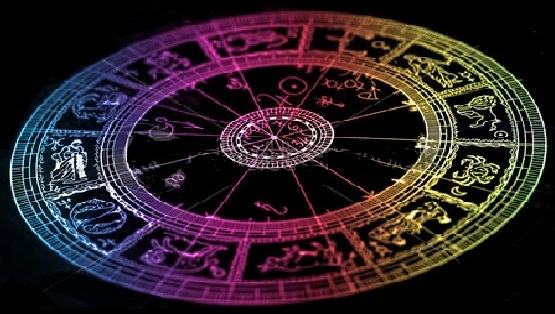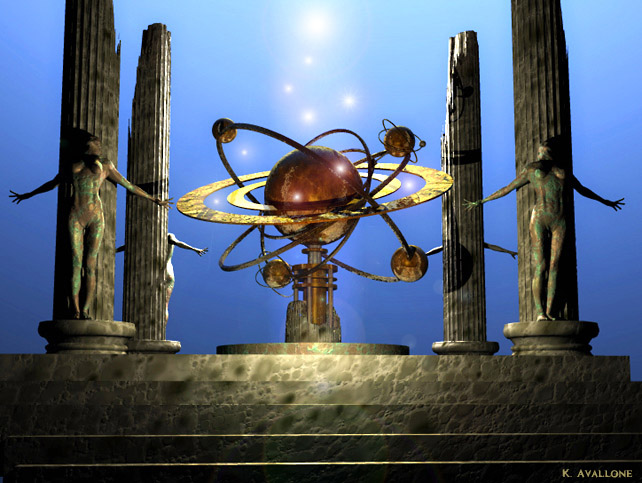Temple Of The Stars


What is Astrology?
Today’s astrology is the study of the cycles as applied to the life of Man and his role in the Universe. It has a long history that dates back to the emergence of modern man from the Neanderthal. As early man began to become more of aware of his environment and the need to improve his chances of survival, he began to think about “tomorrow” or the future. He observed the changes of the seasons and how certain heavenly movements seemed to coordinate with the best times for sowing and reaping and hunting and storing. Historic records indicate that these cosmic observations of early man started around 9000BC in the agrarian tribes in the Middle East where Sun and Moon cycles were not only observed but recorded. Accordingly, Solar or Sun cycles began to be used for measuring time during the day, seasons during the year, and eventually ages throughout a lifetime.
Astrology has been handed down through many ancient cultures namely the Sumerians, the Mesopotamians, the Babylonians or Chaldeans, and the Egyptians. Astrology practiced in modern times is thought to come from the 4th and 5th century Hellenistic Greeks who believed strongly in the correspondence between planetary patterns and the lives of people. To the earlier handed down concepts of astrology, the Greeks added their knowledge of Geometry, Philosophy, and Rational Thought. The great Greek astronomer/astrologers Ptolemy and Hipparchus and the great Greek cosmologists Plato and Aristotle all added their enlightened conceptions to the art of astrology. It is from the Greeks that astrology became “personalized.” From this viewpoint, astrology can help any individual gain a deeper understanding of his or her issues, patterns, fears, and even cherished dreams. It can be used as a powerful psychological tool providing insight into the purpose life thus prompting any individual to employ a stronger sense of self by bringing awareness to personal potential. It can be used as a powerful healing tool by providing all of us with a greater spiritual connection to the Universe thus promoting personal transformation.

Some of the greatest minds in history have studied, practiced, or at the very least respected astrology. Among them are Galileo, Leonardo da Vinci, Hippocrates (the Father of Medicine), Copernicus, Queen Elizabeth I, St. Thomas Aquinas, Popes Sixtus IV, Julius II, and Paul III, Shakespeare, Dante, Goethe, Chaucer, Ralph Waldo Emerson, William Butler Yeats, and even Johannes Kepler and Sir Issac Newton who were partly responsible for the fall of astrology in early history both studied and acknowledged astrology. For centuries people have argued over whether astrology was the forerunner to astronomy and vice versa. This is almost like asking whether the chicken or the egg came first! Suffice to say, astrology and astronomy developed simultaneously. Both scholars and adepts studied astrology and astronomy interchangeably because both art and science bore out the same correlations regarding the course of planetary cycles and their connection to earthly events.
In modern times, one of the most famous names connected to astrology is psychiatrist Carl Jung who consulted the astrological charts of his patients and incorporated those findings into his psychological works particularly those relating to his concepts of the collective unconscious and archetypes. Today, many businessmen and women, movie stars and politicians consult astrologers.
Western astrology encompasses a wide range of techniques. The three main branches of astrology are mundane, interrogatory, and natal. Mundane astrology is the astrology of world events. The word mundane comes from the Latin “mundus” meaning world. Mundane or “judicial” astrology was the first system of astrology to evolve. It developed over thousands of years by early people who observed the connection between the important events of their societies and the cycles of the planets. This is known as solar/lunar or agricultural astrology because early man survival depended upon planting, cultivating and harvesting. As time progressed among these early people the focus shifted from the best time to plant crops to growth and expansion of kingdoms and the affairs of rulers and warlords. Today, mundane astrology is used to analyze world events both political and physical. For example, some mundane astrologers specialize in weather forecasting known as natural or meteorological astrology, others in economic and social factors of different countries, and still others in financial astrology and professional investing.
Interrogatory astrology is concerned with events and their connection to the past, present, and future. There are three divisions in this category which are Horary astrology, Electional astrology, and Event interpretation astrology. Horary astrology runs on the principle that there is a connection between the individual asking the question and the universe at the exact time the question is asked. Horary astrology asks, “WILL this happen?” Electional astrology revolves around calculating the best time to plan an event so the outcome will be favorable. This division of astrology asks, “WHEN is the best time to make this happen?” Electional astrology is used for everything from picking a wedding date, planning a surgery, filing your taxes, etc. Event interpretation asks, “WHAT happened?” This division of Interrogatory astrology is often used in medical astrology where it can be used to gain insight to the cause and effect of an event and with proper interpretation, the nature of the illness and chances for recovery can be discerned.
Natal or genetic astrology is the study of individuality. From the “Nativity” an astrologer can glean information regarding an individual’s talents, abilities, habits, hopes, and fears. A natal chart can show us how to grow and evolve and offers an explanation of the myriad ways we experience and use the energies in our charts to do so according to our own free will. There is no limitation in a Nativity-the only way anyone is limited is by the choices they make according to that free will.
Natal charts serve as the foundation maps for many other facets of astrology including relocation analysis or the best place according to a specific personal dictate such as retirement, love, money etc., projections or analysis of the energies at play over a certain period of time, relationship analysis, esoteric analysis such as past life or karmic interpretation, soul purpose, and even prenatal analysis known as Bailey or Jayne interpretations.

How and why does astrology work?
Astrology works because we are all part of the Universe and the same force that moves the planets also moves us. We all follow the same cycles and patterns.
Astrology is based on three foundations:
The Law of Correspondences
This law states: As above, so below. As within, so without. As the Universe, so the Soul.
The Law of Alchemy
This law states that all the energies are inside of us. If we deny them or suppress them, they will manifest outside of us. This law is about any lessons we don’t approach on a conscious level and how they will manifest externally as forces that are difficult to ignore. This law forces us to take personal responsibility for our actions and spiritual dignity. Since Western astrology is based on the premise of free will, with this law, we can choose where to experience life lessons but that we cannot escape those challenges.
The Law of Beginnings
This law states that the beginning point of life contains the potential that will be fulfilled during the life cycle and beyond.
In this course, the focus will be on natal interpretation. Natal interpretation is the study of human life, birth, childhood, relationships during the course of life, self image and projected image, feelings, thought patterns, beliefs, and all of the energies any individual generates around him or her Self and the cause and effect of those energies.